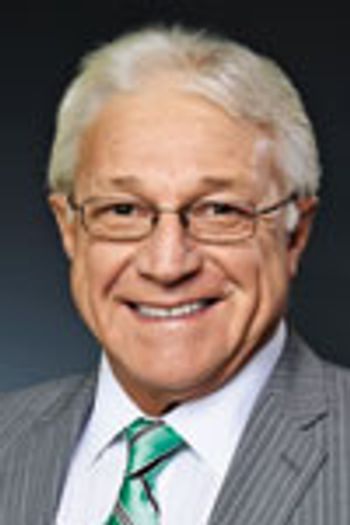
An increasing number of warning letters shows that FDA is observing more problems with pharmaceutical contract manufacturing.

An increasing number of warning letters shows that FDA is observing more problems with pharmaceutical contract manufacturing.

Experts slam drug prices and endorse government price negotiations and curbs on drug advertising.

Manufacturers and trading partners struggle to meet drug tracking requirements

The debate continues over biosimilar naming, interchangeability, and patent protection, as well as lingering concerns in the medical community about the safety of switching patients to new therapies.

While most pharma companies are in partial production using generators, few are operating at 100% capacity.

FDA and manufacturers strive to prevent drug shortages from Hurricane Maria.

Biopharmaceutical companies developing new competitive biotech therapies have pressed hard for clarity on the testing and data required by FDA to gain market approval of biosimilars that can be filled by a pharmacist without prescriber preapproval.

High-priority issues requiring immediate attention leave little time for Congress to consider drug access proposals that have limited bipartisan support.

Efforts to establish an international system for identifying and tracing drugs through the global supply chain are moving forward.

The Senate voted 94–1 to approve legislation reauthorizing user fees and a series of program changes.

Manufacturers are seeking greater oversight of how providers reimburse for and dispense covered drugs.

A recent paper coauthored by FDA’s Lawrence Yu and Michael Kopcha describes how the industry might modernize drug manufacturing.

A Supreme Court decision and improvements in analytical processes may speed the biosimilar approval process.

Congressional measures lack the support to move forward.

New reports indicate that drug prices are slowing compared to other healthcare costs.

CBER is moving forward with the development and approval of regenerative medicine advanced therapies.

FDA hopes to better use global resources and avoid duplicate inspections of foreign facilities.

User fee reauthorizations, a hiring freeze, and opioid epidemic await the new FDA commissioner Scott Gottlieb.

The role of patient advocates in shaping regulations and policy has put attention on financial and operational links between drug companies and independent health organizations.

FDA is in the center of the debate over developing and pricing new cancer therapies.

Scott Gottlieb answers Senators' questions at his confirmation hearing before the Senate Health, Education, Labor and Pensions Committee.

A new report states that wider access to new antivirals for HCV and better screening of patients would help avert 90,000 deaths by 2030.

Manufacturers and regulators are working to reach consensus on the harmonization of management of postapproval changes.

Will new generic drugs bring the cost of medicines down in the way policy makers hope?

Trump’s choice for FDA commissioner faces drug pricing, regulatory, and approval challenges.

President Trump calls for faster FDA approvals and lower drug prices.

FDA plans to initiate its quality metrics program as industry continues to push back.

The industry is becoming more consolidated, but there needs to be some strategy behind the mergers and acquisitions.

The trends in the year 2017 will present the industry with new challenges, and companies will be able to meet them successfully if they focus on the issues at hand.

Drug companies are pushing Congress to action on funding for FDA programs and staff to expedite drug reviews and approvals.